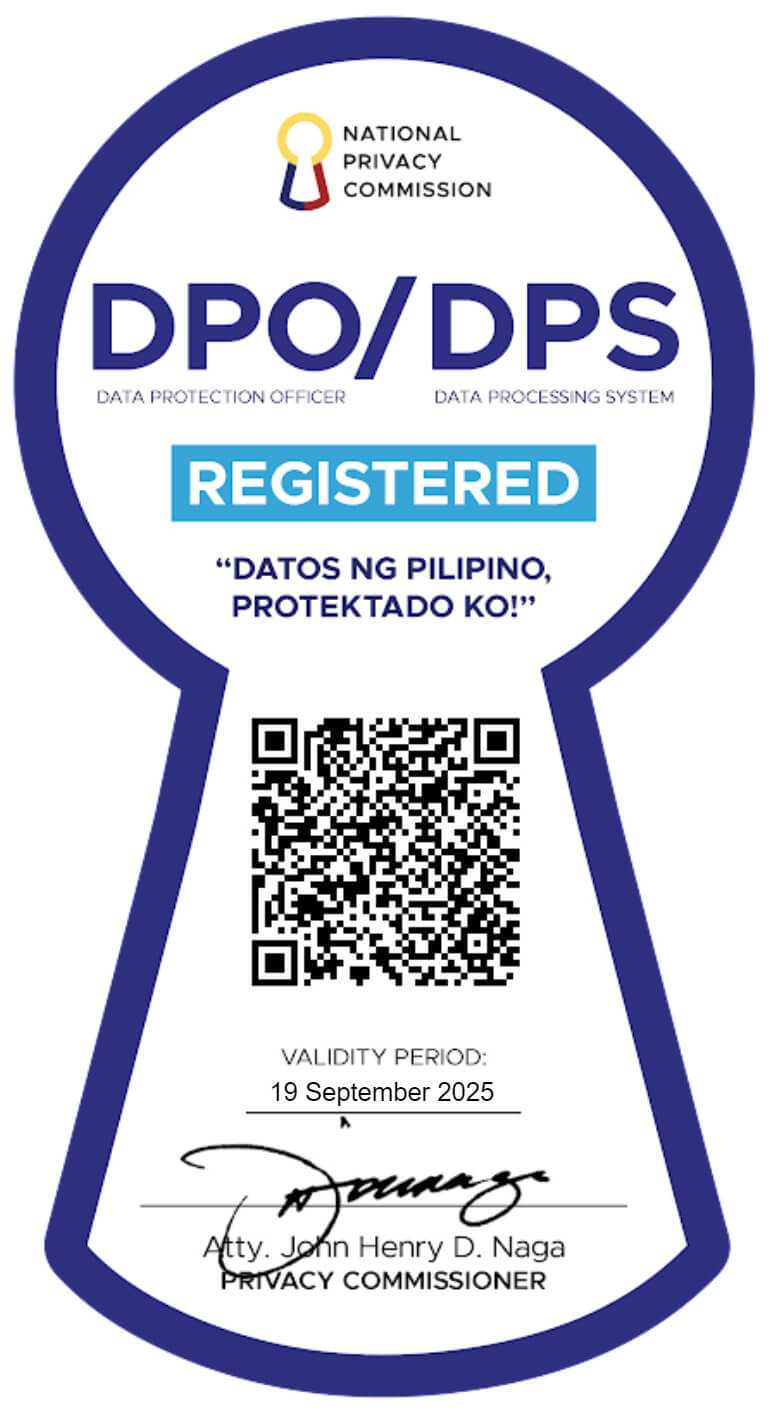-
About Us
Probe CX is a tech-powered, global customer experience organisation that amplifies human capabilities with technological excellence.
-
Awards and Accreditations
As an industry-leading CX and digital transformation provider, Probe CX has a resume to match any of our competition.
-
Compliance
Industry-recognised certifications to protect what matters most to our clients and their customers.
-
Locations
Over 19,000 team members delivering exceptional customer experiences across five countries.
-
Vision and Culture
We help our clients become modern digital organisations by combining the latest technology with people, process and data.
-
Executive Team
Meet the team with unmatched experience committed to helping organisations create environments for digitally-enabled CX to thrive.
-
 Blog
BlogDiscover the latest insights, information and trends in blogs created by customer experience experts.
-
 News
NewsLearn where Probe CX have been recognised in the news, including awards, accreditations, acquisitions, partnerships and more.
-
 Resources
ResourcesDownload our latest resources including whitepapers, case studies, tip sheets, reports and brochures..
A leading energy and gas industry retailer required support with credit collection activities and help to optimise their KMS.
- Blog
- Cloud contact centres – what they are and why they work
Cloud contact centres – what they are and why they work
The fact that it's hard to imagine a time before 'The Cloud' - a technology allowing us to access computing resources without owning or maintaining physical hardware - demonstrates how quickly technology is evolving. Where office buildings once housed bulky and expensive computer servers, data storage and connectivity have been reinvented in recent years, revolutionising how we work.

Nowhere is that more evident than in the world of customer service where cloud contact centres are no longer a novelty but the norm. Studies have revealed that 75% of contact centres are already in the cloud1, with the COVID-19 pandemic and pivot to remote work inspiring many companies to stop merely “testing the waters around cloud-based contact centres”2 and instead fully embrace benefits such as reduced costs, increased productivity and better tracking of customer communication.
For all the benefits of establishing a cloud contact centre though, it is not as simple as clicking a few buttons. Along with highlighting why there is no time to waste in joining the revolution, this article will outline the must-have solutions and provide tips for choosing a CX and tech partner to guide one’s migration to a cloud contact centre.
What is a cloud contact centre?
A cloud contact centre is an internet-hosted solution that enables all customer communications, both inbound and outbound, to be processed. While traditional ‘call centres’ rely on analogue telephone technology that restricts customer support to calls and forces agents to work on-site, cloud solutions feature tools and applications that facilitate remote work and high standards of customer service across multiple channels including voice, SMS, email and social media. Additionally, all a business needs for a cloud solution is a communication device and a powerful internet connection.


Source: Ways Call Center Software Is Changing How We Work (callcenterhosting.com)
What are the benefits of a cloud contact centre?
The benefits of establishing a cloud contact centre are numerous including:
Enhanced agent management:
data is one of the most valued currencies in the modern business world and cloud contact centre solutions allow managers to tap into workforce management tools and analytics to optimise their operations. This includes complex algorithms that can forecast inbound contact volumes and in turn, ensure contact centre managers can make preemptive staffing decisions.Increased automation:
by incorporating features such as intelligent ticket and call routing systems, cloud contact centres automate basic tasks. This streamlines once complex workflows and allows agents to focus on valuable customer-facing interactions instead of repetitive and time-consuming tasks.Scalability:
managing agent numbers is one of the great contact centre challenges. A cloud-based system makes it easier to scale both up and down as the infrastructure is hosted remotely by a provider, negating the need to navigate costly and complicated hardware when increasing or decreasing personnel.Better CX:
the combination of automated contact centre operations and an optimised workforce results in agents being able to dedicate more time to providing superior customer experience. Faster resolutions, more service channels, higher satisfaction.What are the key features of a cloud contact centre?
Cloud contact centres have many integral features including:
Omnichannel support:
one of the best features of a cloud contact centre is its ability to provide a truly omnichannel customer experience. The modern consumer wants to connect when they want on the platform of their choice; a cloud-based system makes that a reality by creating multiple touchpoints in the customer journey so they can connect with agents on their preferred channels. Along with reducing the need to manually rely on third-party tools to fetch context during live interactions, it ensures consistent experiences that reflect the voice of a brand.Intelligent call routing (ICR):
busy contact centres can receive literally hundreds of calls each hour and intelligent call routing ensures they are directed to the right place at the right time. A key component is advanced speech recognition (ASR), which understands the words spoken by a caller when responding to an automatic greeting and assigning a purpose or ‘intent’. This intent is then used to decide what happens next, be it transferring the call to a specific agent, offering self-service options, playing a voice message or switching the caller to a different digital channel.Analytical insights:
understanding the reasons customers make contact is essential for improving CX and this is where cloud contact centre technology shines. There are a range of quality analytical tools that can equip agents, supervisors and decision-makers with insights such as the top reasons for calls and the average time taken to solve queries. This includes the Reporting Insights feature on Probe CX’s Oration, which provides an easy-to-use dashboard that shows important call data, trends and insights in clear graphical representations.App integrations:
the digital nature of cloud contact centres means businesses can extend their capabilities by integrating external systems and tools. Also known as APIs, app integrations can add another layer of capability and enhance customer and agent experience. A prime example is customer relationship management (CRM) integrations, which are used to keep track of customer contacts and information across different platforms and provide agents with comprehensive views of how they interact with the company.What is the difference between cloud and traditional contact centres?
Cloud contact centres outshine traditional set-ups in a variety of ways including:
Setup:
do you want an affordable and fast installation that works across existing devices or a long-winded setup that requires each device to be hardwired to a central system?Scalability:
do you want the chance to scale up or down with a few mouse clicks or call in experts to add extra infrastructure to your on-premise setup?Improvements:
do you want to access developing technologies such as AI via software upgrades or be limited to existing hardware that will deteriorate over time?Integrations:
do you want access to extensive integrations across digital channels and tools or be forced to navigate those that are difficult to set up due to installation and licensing issues?Cost:
do you want to pay minimal costs upfront followed by lower monthly fees per user or the double-whammy of high upfront costs and ongoing payments for system maintenance?Remote work:
do you want your agents to be able to work from anywhere or be forced to house them all in the system’s physical location?How do you choose a cloud contact centre partner?
Creating a premium cloud contact centre environment does not happen by chance, which is why many businesses choose to partner with CX and tech experts who offer tailored solutions for their unique requirements. When making that decision, consider the following tips:
Know your needs:
the best cloud contact centres are those that align with a company’s goals. Take the time to explore exactly what you are looking to achieve (eg: CSAT scores, average handle time) within your current customer interactions and budget considerations.Ensure reliable infrastructure:
from disaster recovery mechanisms and load balancing to high availability guarantees, seek written assurances from potential cloud contact centre partners to ensure their infrastructure can meet your needs. This includes enquiring about scheduled maintenance windows and timely software updates to minimise disruptions.Prioritise security and compliance:
with the protection of customer data, a non-negotiable in the online world, ensure that your cloud contact centre provider can deliver a solution that provides robust security measures. From data encryption and access controls to compliance certifications, it is essential that the provider shows a commitment to stringent security and privacy standards.Seek testimonials:
don’t just take the provider’s word for their capabilities. Do your research and seek independent testimonials to gain the confidence that they will deliver what they promise and help take your contact centre offering to the next level.Conclusion
With the rise of cloud computing, there is no need for businesses to continue to rely on traditional contact centre processes and systems that fall well short of delivering the experiences that today’s customers deserve and expect. Investing in cutting-edge technology and the people who can maximise its potential may be a big decision, but it is not a difficult one given the benefits already being realised by countless organisations.
Bringing out the best in one’s contact centre agents is crucial but, as many executives and managers know, that is often easier said than done. Discover one CX expert’s seven tips for fostering a contact centre environment that lets people shine.
Related Articles
Intelligent Automation
The future of AI driven conversations
How will conversational AI will reshape service delivery from every angle?
Technology
Asynchronous messaging - what it is, how it works and why it’s here to stay
Modern consumers want the ability to communicate with brands on their own terms and asynchronous messaging is allowing them to do just that.
Intelligent Automation
What contact centres in 2028 could look like with Generative AI
Discover a world where technology is helping change the customer experience conversation for contact centre managers, agents and callers.
© Copyright 2025 Probe CX | ProbeCX is a proudly owned subsidiary of Probe Group
Privacy Policy | Responsible AI Policy | Financial Hardship Policy | Whistleblower Policy | Complaints Procedure | Supplier Code of Conduct | Make a Payment | Client Login




